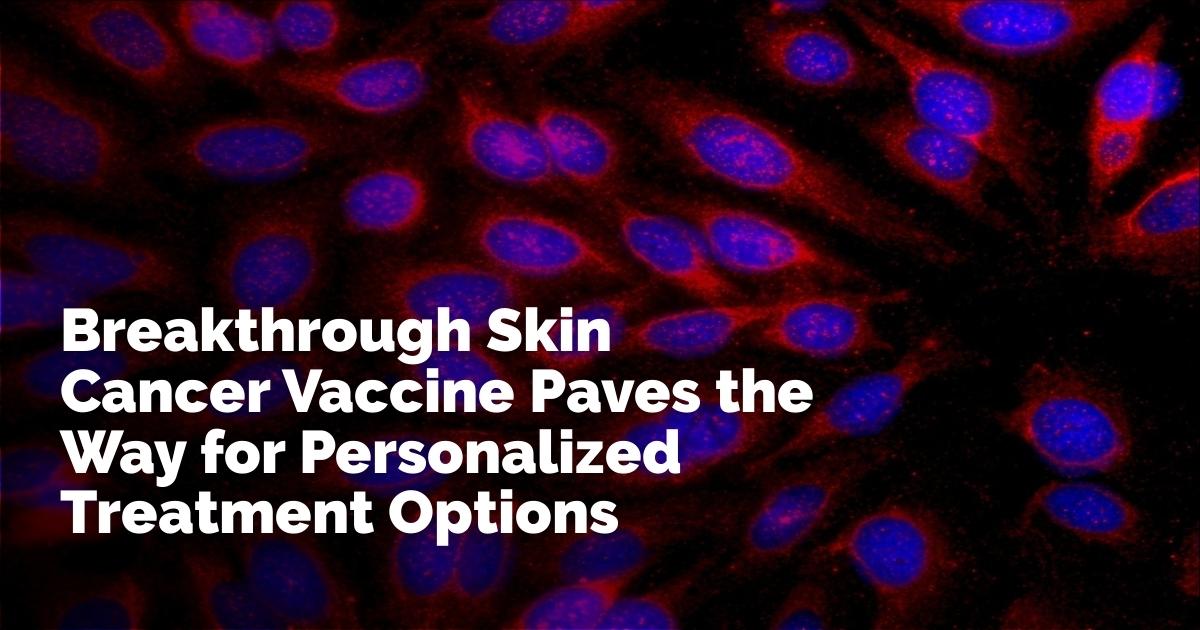World’s First Skin Cancer Vaccine Enters Final Trial Phase
Cancer research and treatment have reached an exciting milestone with the development of the world’s first personalized skin cancer vaccine, currently entering its final global trial. Aimed at treating melanoma, which impacts over 100,000 individuals yearly, this groundbreaking vaccine is spearheading efforts led by the University College London Hospitals NHS Foundation Trust.
A New Frontier in Skin Cancer Treatment
Melanoma is a particularly aggressive form of skin cancer that has accounted for a significant number of cancer-related fatalities. The global trial will include hundreds of patients participating in this study, testing the vaccine's ability to not only extend life but potentially provide a long-term solution for those afflicted by melanoma. This innovation represents a significant step forward in the fight against cancer, with researchers indicating it might also prove effective against other types like lung, bladder, and kidney cancers. Preliminary trials have already shown promise in reducing the chances of recurrence in patients who have undergone initial treatment.
Utilizing Groundbreaking mRNA Technology
The vaccine, referred to as “mRNA-4157 (V940),” employs the same technology as the widely-regarded COVID-19 vaccines. This mRNA vaccine is a form of neoantigen therapy, activating the immune system to target and eliminate cancer cells unique to each patient’s tumor profile. When used in conjunction with pembrolizumab (Keytruda), a known immunotherapy medication, it has demonstrated a significant reduction in melanoma mortality rates by as much as 50%.
Dr. Heather Shaw, a key figure in the trial, emphasized the innovative nature of this modality, underscoring it as a highly individualized form of treatment. “It's far cleverer in some senses than a traditional vaccine," she remarked, highlighting the potential for these therapies to revolutionize cancer treatment. Steve Young, a 52-year-old British patient from Stevenage in Hertfordshire, was among the first to receive the vaccine. His optimism mirrors the medical community's anticipation, as he shares, “This is my best chance at stopping the cancer in its tracks.”
Iain Foulkes from Cancer Research UK acknowledges the personalized nature of this approach, maintaining that while it might not represent a universal cure for all, it significantly advances personalized treatment options. The necessity for continuous funding in such research endeavors is paramount to ensure these treatments are available to more patients, ultimately extending lives.
Navigating Potential Side Effects
As with any medical treatment, assessing side effects is critical. Dr. Shaw reported that the vaccine's side effects were generally tolerable. Most patients experienced mild symptoms such as fatigue and soreness at the injection site, reminiscent of reactions common with flu vaccinations. The limited severity of these side effects is promising and suggests minimal disruption to patients’ daily lives while undergoing treatment.
Commitment to Truly Individualized Treatment
The development of the vaccine has been years in the making, with previous phases showing promising outcomes. During Phase 2, patients were administered 1mg of the mRNA vaccine every three weeks alongside 200mg of Keytruda, a regimen they followed for approximately a year. The results were encouraging enough to push forward into this latest trial phase.
Stéphane Bancel, CEO of Moderna, the pharmaceutical company at the forefront of this innovation, has been vocal about their dedication to providing “truly individualized cancer treatments to patients.” Meanwhile, Dr. Dean Y. Li of Merck Research Laboratories highlighted these advancements as a pivotal moment in their collaboration with Moderna.
Broader Implications for Skin Cancer Treatment
Globally, skin cancer remains a substantial public health concern. In 2022 alone, about 330,000 new cases were reported, with nearly 60,000 resulting in death. The financial implications are equally significant, with the treatment of skin cancers in the United States costing an estimated $8.1 billion annually. This includes expenses of approximately $4.8 billion for nonmelanoma skin cancers and $3.3 billion for melanoma.
In light of these figures, advancements like the personalized mRNA vaccine represent not just hope for those affected but a potentially transformative impact on healthcare costs and resources involved in managing skin cancers worldwide. This final trial phase holds the potential to be a substantial breakthrough, offering not only extended life expectancy for melanoma patients but a shift towards tailored, patient-specific cancer therapies that redefine modern oncology.
출처 : Original Source

